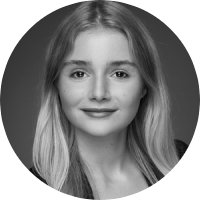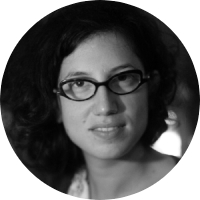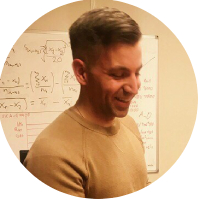
Carsten K.W. De Dreu
Professor of Social, Economic and Organizational Psychology
Office: Pieter de la Court building, room 2A31
email – www
Carsten studies the neurobiological and psychological underpinnings of cooperative decision making, conflict regulation, group decision making, and creativity. For his contributions to psychology and management sciences he received, among others, the William Owens Scholarly Achievement Award from the Society of Industrial and Organizational Psychology (2014, with Gelfand), the 2014 Kurt Lewin Medal from the European Association of Social Psychology, and the 2017 Carole and Ed Diener Award from the Society for Personality and Social Psychology. In 2018 he received a European Research Council Advanced Grant and was awarded the Spinoza Prize, the highest science award in the Netherlands. De Dreu is fellow of the Association for Psychological Science and the Royal Netherlands Academy of Sciences.
De Dreu, C.K.W., & Gross, J. (2019). Revisiting the form and function of conflict: Neurobiological, psychological and cultural mechanisms for attack and defense within and between groups. Behavioral and Brain Sciences, 42, 1-44.
Boot, N.C., Baas, M., Van Gaal, S., Cools, R., & De Dreu, C.K.W. (2017). Creative cognition and dopaminergic modulation of fronto-striatal networks: Integrative review and research agenda. Neuroscience and Biobehavioral Reviews, 78, 13 – 23.
De Dreu, C.K.W., & Kret, M.E. (2016). Oxytocin conditions intergroup relations through up-regulated in-group empathy, cooperation, conformity, and defense. Biological Psychiatry, 79, 165-173.
Balliet, D., Wu, Y., & De Dreu, C.K.W. (2014). In-group favoritism and cooperation: A meta-analysis. Psychological Bulletin, 140, 1556 – 1581.
De Dreu, C.K.W., Greer, L.L., Handgraaf. M.J.J., Shalvi, S., Van Kleef, G.A., Baas, M., Ten Velden, F.S., Van Dijk, E., & Feith, S.W.W. (2010). The neuropeptide oxytocin regulates parochial altruism in intergroup conflict among humans. Science, 328, 1408 – 1411
De Dreu, C.K.W., Nijstad, B.A., & Van Knippenberg, D. (2008). Motivated information processing in group judgment and decision making. Personality and Social Psychology Review, 12, 22 – 49.
De Dreu, C.K.W., & Weingart, L.R. (2003). Task versus relationship conflict, team perfomance and team member satisfaction: A meta-analysis. Journal of Applied Psychology, 88, 741-749.
De Dreu, C.K.W., Weingart, L.R., & Kwon, S. (2000). Influence of social motives on integrative negotiation: A meta-analytical review and test of two theories. Journal of Personality and Social Psychology, 78, 889–905.

Andrea Fariña
PhD student
Office: Pieter de la Court building, room 2A47
email
Andrea is a social neuroscientist interested in the neural underpinnings of inter- and intra-group conflict. She uses behavioral as well as fMRI techniques to answer questions related to the nature of human cooperation. Before joining the conflict-cooperation lab, she completed her MSc in Neuroeconomics at Maastricht University and a Master of Public Policy at the University of Maryland. Andrea is interested in social decision-making, how our preferences for others develop and change depending on our environment, and how these insights can be applied to real world policy issues.
Fariña, A., Rojek-Giffin, M., Gross, J., & de Dreu, C.K.W. (2021). Social Preferences are correlated with the thickness of the orbit-frontal cortex. Soc Cogn Affect Neurosci 16 (11): 1191-1203.

Michael Giffin
Postdoctoral researcher
Office: Pieter de la Court building, room 2A47
email
Michael’s research is primarily concerned with the computational and neural mechanisms underpinning how individuals acquire social norms, and how these norms persist and evolve over time. To this end he combines behavioral economics, computational modeling (e.g., reinforcement learning), and functional magnetic resonance imaging to illuminate how individuals learn novel cultural norms, and what conditions facilitate or impede this learning process.

Jörg Gross
Assistant professor
Office: Pieter de la Court building, room 2A37
email – www
Jörg’s research revolves around human cooperation, conflict, and coordination. He tries to understand why humans often fail to find socially efficient solutions to collective action problems and how norms, social preferences, and incentives can help to mitigate conflict and prevent the breakdown of cooperation in groups. For instance, he investigates how individual solutions to shared problems can lead to a new form of social dilemma that pits individual self-reliance against communal problem solving. In his research, Jörg uses economic games, behavioral experiments, and simulations and tries to take an interdisciplinary perspective, combining methods and theories from psychology, (behavioral) economics, and neuroscience. Jörg has received his Ph.D. degree from Maastricht University where he also investigated (non-strategic) value-based decision making.
Gross, J.& Vostroknutov, A. (2021). Why do people follow social norms? Curr Opin Psychology 44: 1-6.
Gross, J., & De Dreu, C. K. W. (2019). Individual solutions to shared problems create a modern tragedy of the commons. Science Advances, 5, 1–8.
Zhang, H., Gross, J., De Dreu, C., & Ma, Y. (2019). Oxytocin promotes coordinated out-group attack during intergroup conflict in humans. eLife, 8, 1–19. http://doi.org/10.7554/eLife.40698.00
Gross, J., & Dreu, C. K. W. (2019). The rise and fall of cooperation through reputation and group polarization. Nature Communications, 10, 1–10. http://doi.org/10.1038/s41467-019-08727-8
Gross, J., Emmerling, F., Vostroknutov, A., & Sack, A. T. (2018). Manipulation of Pro-Sociality and Rule-Following with Non-invasive Brain Stimulation. Scientific Reports, 8(1), 1–10. http://doi.org/10.1038/s41598-018-19997-5
Gross, J., Leib, M., Offerman, T., & Shalvi, S. (2018). Ethical free-riding: When honest people find dishonest partners. Psychological Science, 29(12), 1956–1968.
Gross, J., & De Dreu, C. K. W. (2017). Oxytocin Conditions Trait-Based Rule Adherence. Social Cognitive and Affective Neuroscience, 12(3), 427–435. http://doi.org/10.1093/scan/nsw138
Gross, J., Méder, Z. Z., Okamoto-Barth, S., & Riedl, A. (2016). Building the Leviathan – Voluntary centralisation of punishment power sustains cooperation in humans. Scientific Reports, 6, 1–9. http://doi.org/10.1038/srep20767
Gross, J., Woelbert, E., & Strobel, M. (2015). The Fox and the Grapes – How Physical Constraints Affect Value Based Decision Making, PloS ONE, 10(6), e0127619. http://doi.org/10.1371/journal.pone.0127619
Strang, S., Gross, J., Schuhmann, T., Riedl, A., Weber, B., & Sack, A. T. (2015). Be nice if you have to – the neurobiological roots of strategic fairness. Social Cognitive and Affective Neuroscience, 10(6), 790–796. http://doi.org/10.1093/scan/nsu114
Gross, J., Woelbert, E., Zimmermann, J., Okamoto-Barth, S., Riedl, A., & Goebel, R. (2014). Value signals in the prefrontal cortex predict individual preferences across reward categories. The Journal of Neuroscience, 34(22), 7580–7586.

Laura Hoenig
PhD student
Office: Pieter de la Court building, room 2A45
Laura is interested in intergroup conflict and how insights from political psychology and political geography can help to understand its occurrence. For her master thesis, she adapted an economic game to investigate the influence of environmental uncertainty and economic inequality on intergroup conflict, while recording neurophysiological correlates. Laura received her Research MSc degree from Leiden University in 2019, preceded by a BSc degree in Psychology from the Free University of Berlin in 2017. To further explore her interest in political psychology, she spent four months as a visiting scholar at NYU’s Social Justice Lab, where she examined ideological differences in the response to economic inequality.

Erik de Kwaadsteniet
Assistant professor
Office: Pieter de la Court building, room 2A33
Erik’s main research interests are social dilemmas, uncertainty, tacit coordination, sanctions, and trust. In 2007, he successfully defended his PhD thesis on uncertainty in social dilemmas, supervised by Eric van Dijk, Arjaan Wit and David De Cremer. After this, he became Assistant Professor at Social, Economic and Organizational Psychology at Leiden University. Moreover, he is a member of the Steering Committee of the International Conference on Social Dilemmas, and the web administrator of www.socialdilemma.com.
De Kwaadsteniet E.W., Kiyonari T., Molenmaker W.E. & Van Dijk E. (2019). Do people prefer leaders who enforce norms? Reputational effects of reward and punishment decisions in noisy social dilemmas., Journal of Experimental Social Psychology 84: e103800.
Molenmaker W.E., De Kwaadsteniet E.W. & Van Dijk E. (2019), The effect of decision timing on the willingness to costly reward cooperation and
punish noncooperation: sanctioning the past, the present, or the future, Journal of Behavioral Decision Making 32(3): 241-254.
Korfage I.J., Kwaadsteniet E.W. de, Voorst A. van, Stiggelbout A.M., Vries M. de & Pieterse A.H. (2018), Preferences for cervical cancer screening: The role of implicit associations, Patient Education and
Counseling 101(2): 310-317.
Dijk E. van, Makagonova V., Kwaadsteniet E.W. de & Schutter M. (2017), Deterrence-based trust in bargaining: Introducing a new experimental
paradigm, Journal of Trust Research 7(1): 71-89.
Welmer E. Molenmaker, De Kwaadsteniet E.W. & Van Dijk E. (2016), The impact of personal responsibility on the (un)willingness to punish non-cooperation and rewards cooperation, Organizational Behavior and
Human Decision Processes 134: 1-15.
Van Dijk E., Molenmaker W.E. & De Kwaadsteniet E.W. (2015), Promoting cooperation in social dilemmas: The use of sanctions, Current Opinion in
Psychology 6: 118-122.
Welmer E. Molenmaker, De Kwaadsteniet E.W. & Van Dijk E. (2014), On the willingness to costly reward cooperation and punish non-cooperation: The
moderating role of type of social dilemma, Organizational Behavior and Human Decision Processes 125(2): 175-183.

Maria Lojowska
Postdoctoral researcher / lab coordinator
Office: Pieter de la Court building, room 2A45
Maria is interested in the effect of emotions on social decision making. In her research, she uses a combination of behavioral and physiological measures (e.g., heart rate responses, pupil dilation) to undersand how automatic defensive responses modulate selfish and prosocial choices under threat. In 2019, she completed her PhD degree on emotional modulation of visual perception (Radboud University, Nijmegen). In her current work, her goal is to understand the contribution of cognitive and emotional processes (e.g, fear conditioning) in social decision making.
Lojowska, M., Ling, S., Hermans, E.J., Roelofs, K. (under review). Pupil dilation impairs perception of high spatial frequency information under threat.
Lojowska, M., Mulckhuyse, M., Hermans, E.J., Roelofs, K. (2019). Unconscious processing of coarse visual information during anticipatory threat. Consciousness & Cognition 70: 50-56.
Lojowska, M., Ling, S., Roelofs, K., Hermans, E.J. (2018). Visuocortical changes during a freezing-like state in humans. Neuroimage 179: 313-325.
Lojowska, M., Gladwin, T.E., Hermans, E.J., Roelofs, K. (2015). Freezing promotes perception of coarse visual features. J Exp Psychol Gen 144(6):1080-8
Von Rhein, D., Cools, R., Zwiers, M.P, …. Lojowska, M., Mennes, M., Buitelaar, J. (2015). Increased neural responsiveness to reward in adolescents and young adults with attention-deficit/hyperactivity disorder and their unaffected sublings. J Am Acad Child Adolesc Psychiatry 54(5):394-402

Zsombor Méder
Postdoctoral researcher
Office: Pieter de la Court building, room 2A35
Zsombor is a decision/game theorist interested in preference change, the role of beliefs and norms in games, and group dynamics. His PhD thesis (Maastricht University, 2015) argued for an explicit modelling of intentions and beliefs in the context of dynamic inconsistency. Some of Zsombor’s current projects revolve around clarifying the notion of symmetry in games, finding the equilibria of group conflict games, and mapping the connections between monetary payoffs, physical pain, and utility. He is fascinated by areas of overlap between theories of decision-making in economics, psychology, biology and physics.
Méder, Z. Z., Flesch, J., & Peeters, R. (2017). Naiveté and sophistication in dynamic inconsistency. Mathematical Social Sciences, 87, 40-54.
Vegetti, F., Fazekas, Z., & Méder, Z. Z. (2017). Sorting your way out: Perceived party positions, political knowledge, and polarization. Acta Politica, 52(4), 479-501.
De Dreu, C. K., Gross, J., Méder, Z., Giffin, M., Prochazkova, E., Krikeb, J., & Columbus, S. (2016). In-group defense, out-group aggression, and coordination failures in intergroup conflict. Proceedings of the National Academy of Sciences, 113(38), 10524-10529.
Gross, J., Méder, Z. Z., Okamoto-Barth, S., & Riedl, A. (2016). Building the Leviathan–Voluntary centralisation of punishment power sustains cooperation in humans. Scientific reports, 6(1), 1-9.
Fazekas, Z., & Méder, Z. Z. (2013). Proximity and directional theory compared: Taking discriminant positions seriously in multi-party systems. Electoral Studies, 32(4), 693-707.
Méder, Z. Z., Flesch, J., & Peeters, R. (2012). Optimal choice for finite and infinite horizons. Operations research letters, 40(6), 469-474.
Méder, Z. Z., Simonovits, A., & Vincze, J. (2012). Tax Morale and Tax Evasion: Social Preferences and Bounded Rationality. Economic Analysis and Policy, 42(2), 171-188.

Welmer Molenmaker
Assistant professor
Office: Pieter de la Court building, room 2A32
Welmer Molenmaker is assistant professor of Social, Economic, and Organizational Psychology at Leiden University and a member of the Leiden Institute for Brain and Cognition (LIBC). Welmer’s main research interest is socio-economic decision-making. Specifically, he focusses on human cooperation and individuals’ reciprocal responses to the cooperative and selfish behaviors of others. Welmer received his research master’s degree in Psychology at the University of Amsterdam in 2011 and his PhD in Psychology at Leiden University in 2017. For his PhD, he focused on the (un)willingness to reward and punish in social dilemmas.
De Kwaadsteniet E.W., Kiyonari T., Molenmaker W.E. & Van Dijk E. (2019), Do people prefer leaders who enforce norms? Reputational effects of reward and punishment decisions in noisy social dilemmas., Journal of Experimental Social Psychology 84: e103800.
Molenmaker W.E., De Kwaadsteniet E.W. & Van Dijk E. (2019), The effect of decision timing on the willingness to costly reward cooperation and punish noncooperation: sanctioning the past, the present, or the future, Journal of Behavioral Decision Making 32(3): 241-254.
Welmer E. Molenmaker, De Kwaadsteniet E.W. & Van Dijk E. (2016), The impact of personal responsibility on the (un)willingness to punish non-cooperation and rewards cooperation, Organizational Behavior and Human Decision Processes 134: 1-15.
Van Dijk E., Molenmaker W.E. & De Kwaadsteniet E.W. (2015), Promoting cooperation in social dilemmas: The use of sanctions, Current Opinion in Psychology 6: 118-122.
Welmer E. Molenmaker, De Kwaadsteniet E.W. & Van Dijk E. (2014), On the willingness to costly reward cooperation and punish non-cooperation: The moderating role of type of social dilemma, Organizational Behavior and Human Decision Processes 125(2): 175-183.
Welmer E. Molenmaker, De Kwaadsteniet E.W. & Van Dijk E. (2013), Kostbaar straffen en belonen in 'warme' versus 'koude' sociale dilemma's. In: Dotsch R., Papies E.K., Pronk T.M., Rutjens B.T., Van der Toorn J., Ufkes E.G. (red.) Jaarboek Sociale Psychologie 2013. Jaarboek Sociale Psychologie Groningen Nederland: ASPO pers. 141-144.
Welmer E. Molenmaker, De Kwaadsteniet E.W. & Van Dijk E. (2012), Ik beloon je met meer dan alleen mijn trots: Altruïstisch belonen en de rol van trots in twee types sociale dilemma's. In: Strick M., Baas M., Van Dillen L., Dotsch R., Lakens D., De Vries M. (red.) Jaarboek Socale Psychologie 2012. Groningen: ASPO pers. 147-150.

Ruthie Pliskin
Assistant professor
Office: Pieter de la Court building, room 2A39
email – www
Ruthie’s central areas of interest are intergroup relations, emotions and their regulation, and political psychology, with a focus on ideology and moralization. Her current research focuses on ideological differences in emotions and emotion regulation processes in interpersonal and intergroup relations. She is also interested in the psychology of moral superiority, intergroup hostility and conflict, social change and collective action, and psychological approaches to overcoming barriers to intergroup conflict resolution. Since 2017, Ruthie has been an Assistant Professor of Social, Economic and Organisational Psychology at Leiden University. Previously, she was a Postdoctoral Associate at New York University’s Department of Psychology (supervisor: John T. Jost), and a PhD candidate at Tel Aviv University and the IDC Herzliya (supervisors: Eran Halperin, Daniel Bar-Tal, and Gal Sheppes). Ruthie is an elected member of the International Society of Political Psychology governing council and an editorial board member at Social Psychological and Personality Science.
Hasan-Aslih, S., Shuman, E., Goldenberg, A., Pliskin, R., van Zomeren, M., & Halperin, E. (in press). The quest for hope: Disadvantaged group members can fulfill their desire to feel hope, but only when they believe in their power. Social Psychological and Personality Science.
Pliskin, R., Ruhrman, A., & Halperin, E. (2020). Proposing a multi-dimensional, context-sensitive approach to the study of ideological (a)symmetry in emotion. Current Opinion in Behavioral Sciences, 24, 75-80. https://doi.org/10.1016/j.cobeha.2020.01.005. Download here.
Goudarzi., S., Pliskin, R., Jost, J. T., & Knowles, E. D. (2020). Economic system justification predicts muted emotional responses to inequality. Nature Communications, 11, 383. https://doi.org/10.1038/s41467-019-14193-z. Download here.
Pliskin, R., Yudkin, D., Jost, J. T., & Trope, Y. (2020). Myopia of the masses: Comparative scope, relative deprivation, and system justification. In J. Suls, R. Collins, & L. Wheeler (Eds.), Social comparison, judgment, and behavior. New York: Oxford University Press.
Pliskin, R., & Halperin, E. (2020). The promise of adopting an emotional approach to understanding and reducing political intolerance. In E. Borgida, C. Federico, & J. Miller (Eds.), At the forefront of political psychology: Essays in honor of John L. Sullivan. New York: Routledge.
Hasan-Aslih, S., Pliskin, R., van Zomeren, M., Halperin, E., & Saguy, T. (2019). A darker side of hope: Harmony-based hope ironically decreases collective action intentions among the disadvantaged. Personality and Social Psychology Bulletin, 45(2), 209-223. https://doi.org/10.1177%2F0146167218783190. Download here.
Zipris, I., Pliskin, R., Canetti, D., & Halperin, E. (2019). Exposure to the 2014 Gaza War and support for militancy: The role of emotion dysregulation. Personality and Social Psychology Bulletin, 45(6), 965–977. https://doi.org/10.1177/0146167218805988. Download here
Alkoby, A., Pliskin, R., Halperin, E., & Levit-Binnun, N. (2019). An eight-week mindfulness-based stress reduction (MBSR) workshop increases regulatory choice flexibility. Emotion, 19(4), 593-604. https://doi.org/10.1037/emo0000461. Download here.
Cohen, R., Pliskin, R., & Halperin, E. (2019). How I learned to stop fearing: Ideological differences in choice of reappraisal content. European Journal of Social Psychology, 49(3), 482-502. https://doi.org/10.1002/ejsp.2527. Download here
Pliskin, R., Halperin, E., Bar-Tal, D., & Sheppes, G. (2018). When ideology meets conflict-related content: Influences on emotion generation and regulation. Emotion, 18(2), 159-170. https://doi.org/10.1037/emo0000317. Download here.
Thomson, R., Yuki, M., Talhelm, T., Kito, M., Schug, J., … Pliskin, R., … Visserman, M. (2018, June 29). Relational mobility predicts social behaviors in 39 countries and is tied to historical farming and threat. Proceedings of the National Academy of Sciences (PNAS), 115(29), 7521-7526. https://doi.org/10.1073/pnas.1713191115. Download here.
Pliskin, R., Goldenberg, A., Ambar, E., & Bar-Tal, D. (2017). Speaking out and breaking the silence. In. D. Bar-Tal (Ed.), Self-censorship in context: Theory and research on a barrier to peace (pp. 243-268). New York: Springer. Download here.
Pliskin, R., & Halperin, E. (2016). Emotions and emotion regulation in intractable conflict and their relation to the ethos of conflict in Israeli society. In K. Sharvit & E. Halperin (Eds.), The Israeli-Palestinian conflict: A social psychology perspective – Celebrating the legacy of Daniel Bar-Tal (Vol. II) (pp. 167-184). New York: Springer. Download here.
Pliskin, R., Sheppes, G., & Halperin, E. (2015). Running for your life, in context: Are rightists always less likely to consider fleeing their country when fearing future events? Journal of Experimental Social Psychology, 59, 90-95. https://doi.org/10.1016/j.jesp.2015.04.001. Download here.
Halperin, E., & Pliskin, R. (2015). Emotions and emotion regulation in intractable conflict: Studying emotional processes within a unique context. Political Psychology, 36(S1), 119-150. https://doi.org/10.1111/pops.12236. Download here.
Nets-Zehngut, R., Pliskin, R., & Bar-Tal, D. (2015). Self-censorship in conflicts: Israel and the 1948 Palestinian exodus. Peace and Conflict, 21(3), 479-499. https://doi.org/10.1037/pac0000094. Download here.
Pliskin, R., Halperin, E., & Bar-Tal, D. (2015). Overcoming socio-psychological barriers: The influence of beliefs about losses. In G. Sher and A. Kurz (Eds.), Negotiations in times of conflict (pp. 193-204). Tel Aviv-Jaffa: INSS. Download here.
Pliskin, R., Bar-Tal, D., Sheppes, G., & Haperin, E. (2014). Are leftists more emotion-driven than rightists? The interactive influence of ideology and emotions on support for policies. Personality and Social Psychology Bulletin, 40(12), 1681-1697. https://doi.org/10.1177/0146167214554589. Download here.
Halperin, E.*, Pliskin, R.*, Saguy, T., Liberman, V., & Gross, J. J. (2014). Emotion regulation and the cultivation of political tolerance: Searching for a new track for intervention. Journal of Conflict Resolution, 58(6), 1110-1138. https://doi.org/10.1177/0022002713492636. Download here.
*Both authors contributed equally
Nasie, M., Bar-Tal, D., Pliskin, R., Nahhas, E., & Halperin, E. (2014). Overcoming the barrier of narrative adherence in conflicts through awareness of the psychological bias of naïve realism. Personality and Social Psychology Bulletin, 40(11), 1543-1556. https://doi.org/10.1177/0146167214551153. Download here.
Bar-Tal, D., Halperin, E., & Pliskin, R. (2014). Why it is so difficult to resolve intractable conflicts peacefully? A socio-psychological explanation. In M. Galluccio (Ed.), Handbook of international negotiation: Interpersonal, intercultural and diplomatic perspective (pp. 73-92). New York: Springer. Download here.

Lennart Reddmann
PhD student
Office: Pieter de la Court building, room 2A47
When do individuals, or groups, partake in peaceful, productive activity and when do they engage in conflict and (attempts at) appropriation? Lennart is interested in the behavioral and economic underpinnings of this dynamic. In his research, he takes an interdisciplinary approach and uses behavioral experiments, economic modelling, and analysis of macro-level historical data. He joined the conflict-cooperation lab as a PhD Candidate in 2018, and holds a MSc in Social and Organizational Psychology from Leiden University and a BSc in Psychology from the University of Groningen.

Angelo Romano
Postdoctoral researcher
Office: Pieter de la Court building, room 2A45
Angelo is interested in understanding the psychology of conflict and cooperation among people, groups, and nations. In particular, Angelo applies theory and methods from social psychology, evolutionary biology, and experimental economics to investigate: (a) the ecological and institutional factors that promote conflict and cooperation across societies, (b) cross-cultural differences in cooperation and conflict, (c) the relation between ingroup favoritism and reputation-based cooperation, and (d) the development of mechanisms promoting cooperation in young children.
Romano, A., Balliet, D., Yamagishi, T., & Liu, J. H. (2018, online first). Reply to De Dreu: Shared partner nationality promotes ingroup favoritism in cooperation. Proceedings of the National Academy of Sciences.
Romano, A., Balliet, D., Yamagishi, T., & Liu, J. H. (2017). Parochial Trust and Cooperation Across 17 Societies. Proceedings of the National Academy of Sciences, vol. 114(8), 12702-127707.
Romano, A. & Balliet, D. (2017). Reciprocity outperforms conformity to promote cooperation. Psychological Science, 28(10), 1490–1502
Romano, A., Balliet, D., & Wu, J. (2017). Unbounded Indirect Reciprocity: Is Reputation-Based Cooperation Bounded by Group Membership? Journal of Experimental Social Psychology, 71, 59-67.
Romano A., Mosso, C.O., and Merlone U. (2016). The Role of Incomplete Information and Others’ Choice in Reducing Traffic: a Pilot Study. Frontiers in Psychology, 7, 135.
Romano A., Merlone U., Mosso C. & Spadaro G. (2016). On the role of group size in social dilemmas. Psicologia Sociale, 1-13.

Luuk Snijder
PhD student
Office: Pieter de la Court building, room 2A47
email – www
Luuk is interested in human cooperation and conflict. In his research, he uses economic games and behavioral experiments to study the how to prevent the breakdown of cooperation, the root causes of intergroup conflict, and the social psychological dynamics involved in (de-) escalation of conflict between groups. Luuk joined the conflict-cooperation lab as a PhD Candidate in 2020 and holds a BSc and Research MSc in Social and Organizational Psychology from Leiden University.

Mirre Stallen
Assistant professor
Office: Pieter de la Court building, room 2A39
email – www
Mirre’s research interests are in understanding the psychological and neuroscientific processes underlying social decision-making, and in the application of these findings to address real-world societal issues. She is particularly interested in the impact of poverty on decision-making, and applying scientific insights to the development of actual policy interventions aiming to alleviate poverty in the Netherlands and abroad. To this end, Mirre currently combines two career paths. Since 2017, she has been an assistant professor at the Social, Economic and Organisational Psychology department, at the Faculty of Social and Behavioural Sciences at Leiden University. Since 2017, she has also been a senior researcher at the Poverty Interventions research group of the Amsterdam University of Applied Sciences. Combining these two tracks allows Mirre to apply insights from academia to the development of poverty interventions in the field, while, at the same time, translating questions from the field to my research in the lab.
Huijsmans, I., Ma, I., Micheli, L., Civai, C., Stallen, M., & Sanfey, A.G (2019). A scarcity mindset alters neural processes underlying consumer decision making. Proceedings of the National Academy of Sciences of the United States, 116 (24), 11699-11704.
Knutson B., & Stallen, M. How can affect influence choice? The Nature of Emotions, 2nd edition (2018). In Fox, A. S., Lapate, R. C., Shackman, A. J. & Davidson, R. J. (Eds.) (pp. 339-342), The nature of emotion. Fundamental questions (2nd edition). New York: Oxford University Press.
Stallen, M., Rossi, F., Heijne, A., Smidts, A., de Dreu, C.K.W. & Sanfey, A.G. (2018). Neurobiological mechanisms of responding to injustice. The Journal of Neuroscience, 38(12), 2944-2954.
Stallen, M. Griffioen, N. & Sanfey, A.G. (2017) Why are we not more selfish? What the study of brain and behavior can tell us. Frontiers for Young Minds, 5:47.
Sanfey, A.G. & Stallen, M. (2016). Neurosciences Contribution to Judgment and Decision-Making: Opportunities and Limitations. Wiley Blackwell Handbook of Judgment and Decision Making.
Stallen, M. & Sanfey, A.G. (2015). Cooperation in the brain: Neuroscientific contributions to theory and policy. Current Opinion in Behavioral Sciences, 3, 117-121.
Stallen, M. & Sanfey, A.G. (2015). The neuroscience of social conformity: Implications for fundamental and applied research. Frontiers in Neuroscience, 9:337.
Sanfey A.G., Stallen, M. & Chang, L. (2014). Norms and expectations in social decision-making. Trends in Cognitive Sciences, 18, 172-174.
Smidts, A., Hsu, M., Sanfey, A.G., Boksem, M.A.S., Ebstein, R.B., Huettel, S.A., Kable, J.W., Karmarkar, U.R., Kitayama, S., Knutson, B., Liberzon, I., Lohrenz, T., Stallen, M. & Yoon, C. (2014). Advancing Consumer Neuroscience, Marketing Letters, 25, 257-267.
Stallen, M. & Sanfey, A.G. (2013). The cooperative brain. The Neuroscientist, 19, 292-303.
Stallen, M., Smidts, A. & Sanfey, A.G. (2013). Peer influence: Behavioral and neuroimaging studies of in-group conformity. Frontiers in Human Neuroscience, 7:50.
Stallen, M., de Dreu, C., Shalvi, S., Smidts, A. & Sanfey, A.G. (2012). The herding hormone: Oxytocin stimulates in-group conformity. Psychological Science, 23, 1288-1292.
Fahrenfort, J.J., van Winden, F., Pelloux, B., Stallen, M. & Ridderinkhof, K.R. (2012). Neural correlates of dynamically evolving interpersonal ties predict prosocial behavior. Frontiers in Neuroscience, 6:28.
Stallen, M. & Sanfey, A.G. Neuroeconomics and Game Theory. (2011). Wiley Encyclopedia of Operations and Management Science.
Stallen, M., Smidts, A., Rijpkema, M., Smit, G., Klucharev, V.A. & Fernandez, G. (2010). Celebrities and shoes on the female brain: The neural correlates of product processing in the context of fame. Journal of Economic Psychology, 31, 802-811.
Van Winden, F., Stallen, M. & Ridderinkhof, K.R. (2008). On the nature, modeling and neural bases of social ties. In D.E. Houser & K.A. McCabe (Eds.), Neuroeconomics, 20, 125-159.
Beer, J.S., Stallen, M., Lombardo, M.V., Gonsalkorale, K., Cunningham, W.A. & Sherman, J.W. (2008). The Quadruple Process Model approach to examining the neural underpinnings of prejudice. Neuroimage, 43(4), 775-783.